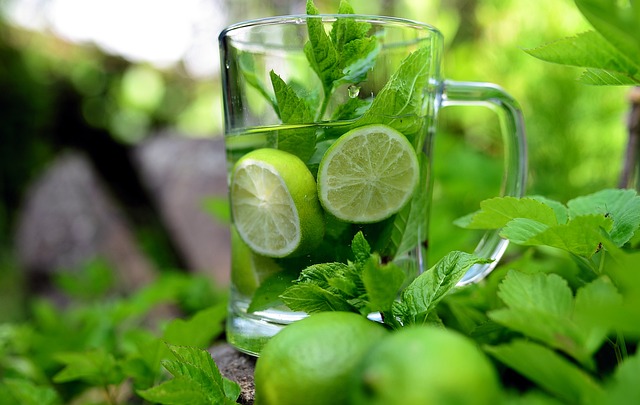 What should a Catholic do when they encounter a wellness organization that presents itself as Catholic and yet promotes Eastern meditation techniques, naturopathy, homeopathy, and other New Age modalities? Can a Catholic healthcare provider really have it both ways?
What should a Catholic do when they encounter a wellness organization that presents itself as Catholic and yet promotes Eastern meditation techniques, naturopathy, homeopathy, and other New Age modalities? Can a Catholic healthcare provider really have it both ways?
No, but that doesn’t mean they won’t try.
We recently received a complaint about a Catholic wellness provider that intermingles many faith-based practices such as adoration and prayer, yet promotes an eastern meditation app known as Headspace. The only member of its medical staff is a naturopath, and another staff member claims to practice functional medicine and offers functional diagnostic nutrition. None of the above is compatible with the Catholic worldview.
Thankfully, this person decided there were enough red flags to “stick to her gut and steer clear of this organization,” but the experience left her confused about Catholics and the wellness market in general. Because it’s so saturated with New Age practices, how do Catholics discern what to avoid and what is spiritually safe, especially when dealing with the mixed signals described above?
First of all, it’s important to understand that the wellness market is big business – to the tune of $450 billion in the US last year and growing at a rate of five percent per year. That’s a lot of money, enough to attract the nefarious along with the genuine – all of whom are using the top trending marketing buzzwords such as “natural remedies,” “ancient cure,” and “holistic wellness.” What most people don’t know is that the wellness market is comprised of several areas – health, fitness, nutrition, appearance, mindfulness, and sleep – and these offerings can range from scientifically credible practices to unscientific pseudoscience.
As consumers, we need to discern the healthy from the unhealthy in this wide panoply of novel new offerings, but as Catholic healthcare consumers, we also need to be careful about the spiritual ramifications of our choices.
 Using the above as an example, naturopathy and functional medicine are typically presented – even by Catholics – in benign terms such as being “natural” healing methods that give “glory to God’s creation” and “treat the root cause rather than the symptoms.” However, there’s a whole lot more to these practices than these simplistic slogans.
Using the above as an example, naturopathy and functional medicine are typically presented – even by Catholics – in benign terms such as being “natural” healing methods that give “glory to God’s creation” and “treat the root cause rather than the symptoms.” However, there’s a whole lot more to these practices than these simplistic slogans.
As this blog explains, naturopathy is based on the philosophy of vitalism which is the belief that all living beings possess an intelligent, living energy that gives the body an innate ability to heal. This living energy goes by a variety of names such as chi, ki, prana, universal life force, and is part of a pantheistic belief system that is not compatible with Christianity. In fact, the Vatican document “Jesus Christ the Bearer of the Water of Life” refers to this energy as “the new age god” because of its pervasiveness in a variety of New Age practices from Reiki to yoga.
Equally problematic is the fact that there is no scientific proof of the existence of this energy force. Most people believe it has to do with the energy found naturally in the body such as monochromatic radiation, electromagnetic forces, sound waves, etc. but this is incorrect. These are different forms of energy from what is popularly known as the “vital force” that underlies naturopathy.
The energy found in the body is known as veritable energy and is scientifically supported; the energy that forms the basis of naturopathy and so many other New Age practices is known as putative energy and has no scientific support. This is why, if a Catholic relies upon treatments based on this putative form of energy for any condition considered life-threatening or contagious, they risk falling into the trap of superstitious medicine.
Naturopaths also use questionable diagnostic methods such as muscle testing and radiesthesia which is a form of dowsing. They also tend to recommend scientifically and spiritually questionable treatments that include homeopathy, aromatherapy, Reiki massage, yoga, and mindfulness meditation.
As for the functional diagnostic nutrition offered by the organization mentioned above, this is based on the concept of functional medicine which practitioners describe as “an individualized, patient centered, science-based approach that empowers patients and practitioners to work together to address the underlying causes of disease and promote optimal wellness.”
 Although this sounds harmless, the problem is that it’s not entirely science-based and frequently strays into the realm of pseudoscience. For example, as this blog explains, many (not all) FDN practitioners are not well-trained and frequently make erroneous claims such as how “leaky gut” releases toxins into the body (it doesn’t). Practitioners are also known to diagnose conditions that don’t exist such as estrogen dominance, adrenal fatique, and heavy metal toxicity, then charge money to treat them.
Although this sounds harmless, the problem is that it’s not entirely science-based and frequently strays into the realm of pseudoscience. For example, as this blog explains, many (not all) FDN practitioners are not well-trained and frequently make erroneous claims such as how “leaky gut” releases toxins into the body (it doesn’t). Practitioners are also known to diagnose conditions that don’t exist such as estrogen dominance, adrenal fatique, and heavy metal toxicity, then charge money to treat them.
They also tend to employ diagnostic methods such as the IgG test for food sensitivity which is not recognized by any allergy or immunology society in the developed world. The hair testing they employ to detect metal toxicity is not considered reliable, and they use the DUTCH test for hormone metabolites which offers nothing more than what a patient would get from a conventional lab test.
Perhaps the biggest credibility problem with FDN is its inventor, Reed David, who is not a medical doctor and received his certification through the International Foundation for Nutrition and Health, an organization dedicated to promoting the work of an inventor known as Dr. Royal Lee who appears to have spent the better part of his career in trouble with the Food and Drug Administration for making false claims about phony products.
I could go on and on, but I think you get the point. There’s a lot more to “wellness” than what appears on state-of-the-art websites across the globe.
Because of this, the Catholic healthcare consumer needs to be even more savvy than the average consumer because we’re looking for spiritual as well as physical risks associated with the treatments we choose. We can’t afford to neglect the kind of serious and objective study of these so-called “Godly” and “natural” remedies for ways in which they may be connected to the New Age and the occult, especially because many of the Catholic practitioners may also be unaware of these connections.
Regardless of how Catholic a provider may appear on their website, if they are promoting any New Age “wellness” techniques they should be avoided.
© All Rights Reserved, Living His Life Abundantly®/Women of Grace® http://www.womenofgrace.com









